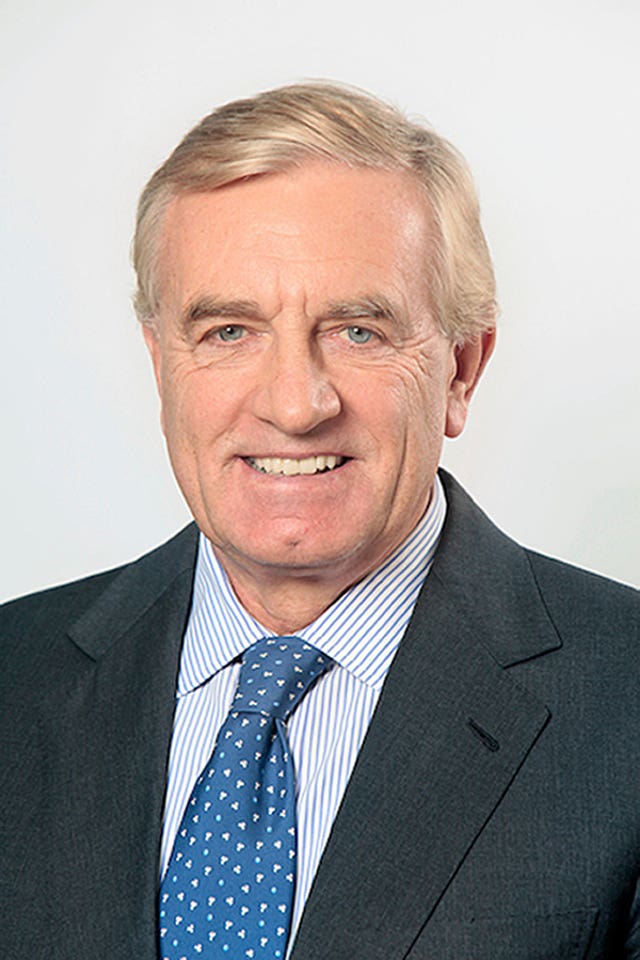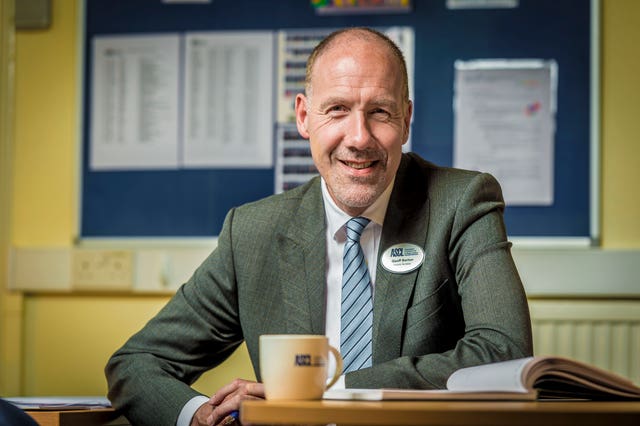
State school teachers are nearly twice as likely as private school colleagues to report high staff absences due to Covid-19, a survey suggests.
Staff absences are more pronounced in the most deprived state schools across England, according to a Sutton Trust report.
Around a quarter of all teachers said they have prepared materials to support remote learning in the last week amid disruption, the poll found.
Many children who need to learn at home because they are isolating are still struggling to access laptops or tablets for learning, the report suggests.
The social mobility charity is calling on the Government to urgently ensure that all pupils have access to a device for remote learning – and that schools have adequate funding to pay for cover for absent staff.
The survey, of nearly 7,000 teachers in schools across England, suggests that state school teachers are more likely to report that at least 10% of their colleagues were currently off due to Covid-19 (20% vs 12%).
Teachers in the most deprived state schools were almost three times more likely than teachers in private schools to report that one in 10 or more of their colleagues were absent due to Covid-19 (29% vs 12%).
The poll found that 8% of all teachers said more than one class was being taught together due to staff shortages, and 8% said staff were unable to come in due to lack of access to lateral flow or PCR tests.

Sir Peter Lampl, founder and chairman of the Sutton Trust, said: “While most children are now back at school, disruption is continuing with schools heavily impacted by Covid-related staff absences.”
He added: “We must do all we can to ensure that poorer pupils are not further disadvantaged as a result of this disruption.
“As more pupils move to remote learning again, all pupils must have the resources they need to learn from home.
“The most important thing for the Government to do is to strengthen existing education recovery and make sure sufficient funding is being provided to cover absent staff.”
Paul Whiteman, general secretary of school leaders’ union NAHT, said it was “unacceptable” that two years into the pandemic some children still do not have access to devices for remote learning.
He added: “It is worrying that schools serving the most deprived areas seem to be reporting the most staff off sick.
“Children from more deprived backgrounds have had it the toughest during the pandemic and need the most help now, so if there’s some reason they’re being disproportionately impacted by staff absence, that needs to be urgently looked at.”

Geoff Barton, general secretary of the Association of School and College Leaders (ASCL), said it was understandable that disruption caused by staff absence is lower in private schools “as they often have smaller class sizes and this is likely to reduce the risk of transmission to other pupils and staff”.
He said: “The Omicron surge means that many schools are dealing with very high levels of staff absence and this means having to take steps which are clearly not ideal, such as support staff covering lessons and combined classes.”
Mr Barton added: “It is very frustrating to see that staff have been unable to come into school because of lack of access to Covid tests and it is essential that the Government ensures that there are adequate supplies of tests available.
“It also beggars belief that almost two years on from the first lockdown there are still many schools, most notably those in areas of deprivation, that do not have access to the devices their students need to be able to study at home.”
Julie Robinson, chief executive of the Independent Schools Council (ISC), said: “The pandemic has impacted all schools and we absolutely support assistance for those hardest hit.
“We all want more funding for state schools and greater support for underperforming pupils, which is why we encourage the ongoing development of partnership working between schools.”
A Department for Education spokesperson said: “We are supporting schools through encouraging former teachers to come back to classrooms and extending the Covid workforce fund for schools that are facing the greatest staffing and funding pressures.
“We’ve also asked schools to have contingency plans to maximise attendance and minimise disruption to learning, should they have high rates of staff absence, and are working with the sector to share case studies of flexible learning models to support the development of those plans.”
– Teacher Tapp surveyed up to 6,964 teachers in schools across England between January 7 and 10.


Comments: Our rules
We want our comments to be a lively and valuable part of our community - a place where readers can debate and engage with the most important local issues. The ability to comment on our stories is a privilege, not a right, however, and that privilege may be withdrawn if it is abused or misused.
Please report any comments that break our rules.
Read the rules here